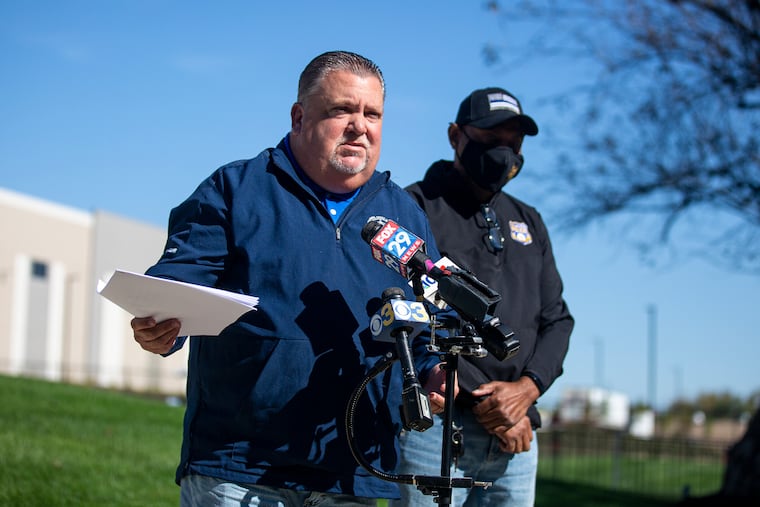Philly’s FOP sues the city over requirement for public hearing on police contracts
“This is an attempt by City Council to once-again demonize and target hardworking Philadelphia police officers,” FOP Lodge 5 president John McNesby said in a statement.

The Philadelphia Fraternal Order of Police Lodge 5 has sued the city, contending that a new ordinance requiring a public hearing on proposed Police Department contracts violates officers’ collective bargaining rights and state law.
“We had to do something in order to put an end to what they’re doing, demonizing police officers in the city of Philadelphia,” police union president John McNesby said Wednesday at a news conference.
The lawsuit seeks to block the measure enacted last month that requires public hearings in City Council on initial proposals for police labor contracts.
It argues the ordinance is preempted by a 1968 state law that governs collective bargaining between police unions and municipalities and also exceeds the city’s authority under the Home Rule Act.
First-term Councilmember Katherine Gilmore Richardson sponsored the measure in June; it does not allow public input on final approval of a police contract.
“Here you have a person in City Council who’s a freshman who’s just looking to get their name on some legislation," McNesby said, taking a swipe at Gilmore Richardson without mentioning her by name.
Gilmore Richardson said the measure creates public “transparency and accountability” for the police. “It is a shame the FOP wants to block a process that will help build trust and confidence,” she said.
Her bill was part of a package of measures introduced in the aftermath of the May 25 killing of George Floyd by a Minneapolis police officer and protests calling for greater police accountability.
“The administration strongly disagrees with the argument that this measure adversely impacts collective bargaining rights, and we are prepared to defend the ordinance in court," city spokesperson Lauren Cox said in a statement. She added that seeking input from residents does not conflict with the state law.
Also last month, City Council approved a prohibition on police using choke holds or kneeling on a person’s neck. “We’re in favor of that,” McNesby said. “Nobody’s out there choking people, doing things like that.”
McNesby said a ban on certain munitions used against protesters, which Council has begun discussing, would be harmful.
“They want to do away with tear gas, they want to do away with rubber bullets," he said. "What’s next? … If you take all our nonlethal weapons … it only leaves you with lethal.”
The lawsuit, filed Tuesday in Philadelphia Common Pleas Court, notes that the city ordinance applies only to the police union.
Voters are being asked in the Nov. 3 general election to decide on proposed amendments to the city’s Home Rule Charter to create a civilian oversight commission on police conduct and to call on the Police Department to end what a ballot question calls “unconstitutional stop-and-frisk” tactics.